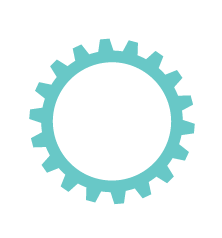Hawai‘i Space Flight Lab
Project POKE (Providing an Opportunity for Keiki in Engineering)
SUMMARY
Project POKE (Providing an Opportunity for the Keiki in Engineering) allows Hawai‘i’s keiki in middle and high school to gain aerospace experience through interaction with a small satellite. Through building a STEM community based on collaboration and project-based learning, the program aims to offset learning loss amidst the COVID-19 pandemic. Project POKE consists of an educator course, hardware kit, collaborative digital space, design challenge, and symposium. Educators and students colearn about spacecraft mission design, using undergraduate level materials adapted for K12 learning. Students are challenged to develop a mission to study a problem affecting their community using a CubeSat then present their design to local STEM professionals at the culminating symposium. The first iteration was completed in the 2021-2022 school year with 14 teachers and over 200 students. Project POKE works to create a diversified and collaborative STEM community in Hawai‘i, while demystifying space science and aerospace engineering.
PROJECT LEAD : Amber Imai-Hong
CONTACT :
amber@hsfl.hawaii.edu
(808) 987-0567
OUTCOME :
Project POKE was implemented in the Spring 2022 semester. 44 educators expressed interest, 24 teachers participated in the online educator course, and 14 of the teachers completed the course, earning three professional development (PD) credits. Of the 14 educators, 11 were from Oahu, two were from Hawai‘i Island, and one was from Kauai with nine participants identifying as male and five identifying as female. Six taught middle school, nine taught high school, and one teacher taught grades six through 12. A total of 23 student teams across 12 schools presented their ideas to 15 STEM professionals from 10 organizations. Participating professionals had a diverse range of specialties and were selected from the participating schools communities with diversity, equity, and inclusion in mind so that students could see themselves in the reviewers.
From post-symposium feedback, all educators reported having enjoyed the program, expressed interest in participating again, felt that their students were genuinely interested in the material and overall had enjoyed the program and appreciated the feedback from professionals. Educators attributed their fondness for the program to the support they felt from the Project POKE team. Here are quotes from educators:
“love[d] learning something new to teach to students that [was] a real world application beyond the classroom.”
“[the program was] a different challenge from the norm that emphasize[d] a growing field which [was] very relevant for future prospects.”
Middle schoolers reported being inspired to keep up their STEM studies, while high schoolers expressed an interest to pursue STEM and aerospace engineering degrees. Student participants agreed that Project POKE helped them learn about space missions, better understand STEM topics, and attributed their enjoyment to the design challenge which allowed them to explore topics they are passionate about. A student group talked to Subject Matter Experts and presented their idea to their County Representative and are looking into implementing their search and rescue mission. A student who changed their major to Aerospace said this “This project has taught me that ideas can have real-world applications and uses that, unless explored, might not have been realized otherwise.”
LESSONS LEARNED :
Pulling students and educators out of their comfort zones during a high stress time is challenging and sometimes unfair. Of the 44 educators who signed up, 24 participated in the online teacher course and 14 completed it. The 10 educators who dropped out reported burnout, additional/changing school requirements, and external pressures due to the pandemic as reasons they were unable to commit the time required. Students participation in afterschool programs was limited in some schools. Some of the participating teachers felt that they couldn’t have all of their teams present to STEM professionals because they would take up too much time, so the impact of the project was broader than we reported.
The educator course was reported as somewhat challenging to follow, due to the large amounts of new information covered, however by the end of the program educators reported knowing more about the topics listed in the syllabus and felt more confident in teaching these subjects to their students. Educators enjoyed the online platform and resources provided by the program, which allowed them the flexibility to rewatch the lectures and utilize the slides in their classrooms. Future improvements include spending more time on the software-focused classes, providing more classroom resources, and more interaction with professionals and near-peer mentors. Something the project team learned was to take more time to solicit feedback from the participants (students, educators, and STEM professionals) through conversations and surveys.
In addition to these issues, the project team learned that being flexible and creating technology that has the ability to adapt to supply issues is key during a pandemic. The hardware rollout was delayed due to the lack of electronic components, so the project team learned a lot about how to design circuits and procurement during the pandemic. The team also learned that the state/university procurement process delays the schedule significantly and is a huge roadblock to implementing innovation on a short timeline.





